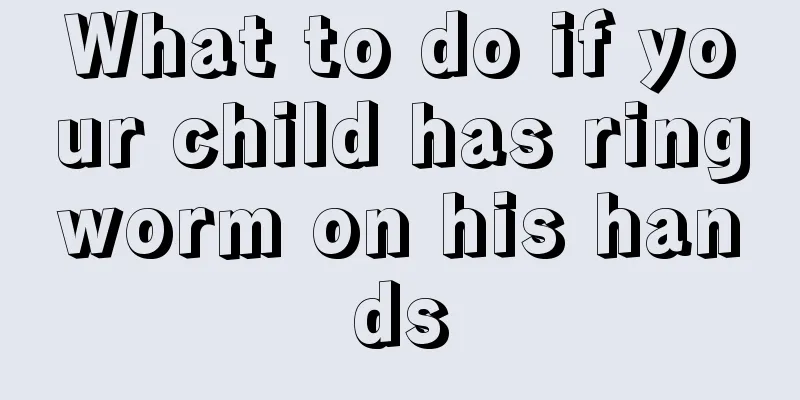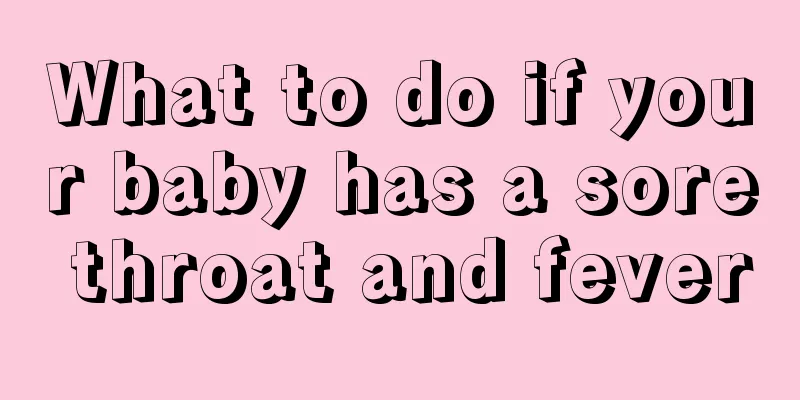Can neonatal dacryocystitis heal on its own?

|
Neonatal dacryocystitis is mostly caused by incomplete maternal development. It is a common disease in newborns and is divided into acute and chronic types. The treatment method has become a concern for parents. Many parents want to know whether neonatal dacryocystitis can heal itself? If you want to know the answer to this question, please read the following carefully! Neonatal dacryocystitis is a common disease in newborns, most of which can heal themselves a few months after birth. This disease is mainly caused by the incomplete development of the tear duct in children, which leads to the inability of tears to flow back and eventually causes an inflammatory reaction. For example, if there is a lot of eye mucus, parents can wash their hands, take a clean cloth, and use the index finger of the right hand to massage the area next to the nose of the affected eye from top to bottom three times a day, 3-5 times each time, until the purulent secretions are eliminated. Then wash your hands and drop Tobrex eye drops. If there is no effect after one month, you can wash the tear duct once a week. If it is not effective after four times of washing, you can perform tear duct probing again. During the operation, anesthetics are dropped into the eyes three times, and then the operation is performed. It is normal for blood to flow out of the nasal cavity after the operation, and it is generally effective after the operation. It is not possible to generalize whether neonatal dacryocystitis can heal on its own. If conservative treatment for more than four months is ineffective, and some children's symptoms become more and more severe, surgery must be considered at this time. There are two types of surgeries. One is the tear duct probing surgery, which is not very effective for some more complicated cases, older children, or even children with congenital tear duct malformations. Another type of surgery is tear duct intubation, also known as tear duct implantation, which is the newest type of surgery. Can neonatal dacryocystitis heal on its own? As for the answer to this question, I believe you already know it very clearly through the introduction above! We cannot generalize whether dacryocystitis can heal itself. Some cases will recover slowly on their own, but some may worsen. Parents, it is better to take your children to the hospital for examination. |
<<: Will neonatal dacryocystitis heal on its own?
>>: How to treat children's air conditioning disease
Recommend
How to make broccoli baby food
Broccoli ranks first among vegetables, which mean...
Tips for treating bloating in 3-year-old children
Flatulence is a disease that is not limited to an...
Why do children like to suck their fingers?
Many parents find that their children like to suc...
Why does my child's nose always bleed?
Children's health is a matter of great concer...
What is the reason for increased texture on both lungs in children's chest X-rays?
Autumn and winter are the peak seasons for childr...
What to do if your child has yellow teeth
We all know that normal teeth should be white, bu...
How to treat children’s allergic cough with traditional Chinese medicine?
Because children are young and have very poor phy...
What causes nose bleeding in children?
What is going on when a child has a nosebleed? Th...
Are mosquito repellent patches harmful to babies?
When summer comes, the weather is hotter and it i...
What should I do if my baby falls and his nose bleeds?
Most babies are usually very naughty, especially ...
What are the benefits of eating shrimp for children?
Shrimp is a type of aquatic product, especially i...
What are some tips for getting your child to sleep?
We all know that children nowadays are rather nau...
How can teenagers prevent hair loss?
Due to heavy schoolwork, teenagers now face no le...
What causes babies to breathe rapidly?
After a newborn is born for the first time, becau...
Are mosquito coils harmful to children?
Parents are responsible for their children's ...









